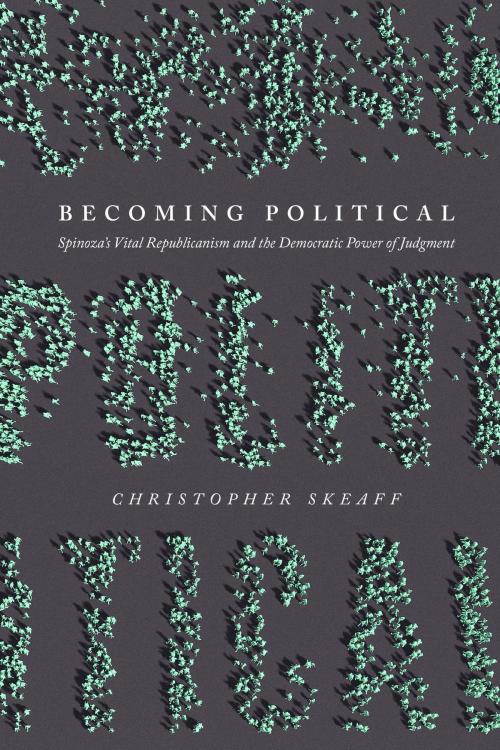Becoming Political
Spinoza’s Vital Republicanism and the Democratic Power of Judgment
Nonfiction, Religion & Spirituality, Philosophy, Political, Social & Cultural Studies, Political Science, Politics, History & Theory| Author: | Christopher Skeaff | ISBN: | 9780226555508 |
| Publisher: | University of Chicago Press | Publication: | June 25, 2018 |
| Imprint: | University of Chicago Press | Language: | English |
| Author: | Christopher Skeaff |
| ISBN: | 9780226555508 |
| Publisher: | University of Chicago Press |
| Publication: | June 25, 2018 |
| Imprint: | University of Chicago Press |
| Language: | English |
In this pathbreaking work, Christopher Skeaff argues that a profoundly democratic conception of judgment is at the heart of Spinoza’s thought. Bridging Continental and Anglo-American scholarship, critical theory, and Spinoza studies, Becoming Political offers a historically sensitive, meticulous, and creative interpretation of Spinoza’s texts that reveals judgment as the communal element by which people generate power to resist domination and reconfigure the terms of their political association. If, for Spinoza, judging is the activity which makes a people powerful, it is because it enables them to contest the project of ruling and demonstrate the political possibility of being equally free to articulate the terms of their association. This proposition differs from a predominant contemporary line of argument that treats the people’s judgment as a vehicle of sovereignty—a means of defining and refining the common will. By recuperating in Spinoza’s thought a “vital republicanism,” Skeaff illuminates a line of political thinking that decouples democracy from the majoritarian aspiration to rule and aligns it instead with the project of becoming free and equal judges of common affairs. As such, this decoupling raises questions that ordinarily go unasked: what calls for political judgment, and who is to judge? In Spinoza’s vital republicanism, the political potential of life and law finds an affirmative relationship that signals the way toward a new constitutionalism and jurisprudence of the common.
In this pathbreaking work, Christopher Skeaff argues that a profoundly democratic conception of judgment is at the heart of Spinoza’s thought. Bridging Continental and Anglo-American scholarship, critical theory, and Spinoza studies, Becoming Political offers a historically sensitive, meticulous, and creative interpretation of Spinoza’s texts that reveals judgment as the communal element by which people generate power to resist domination and reconfigure the terms of their political association. If, for Spinoza, judging is the activity which makes a people powerful, it is because it enables them to contest the project of ruling and demonstrate the political possibility of being equally free to articulate the terms of their association. This proposition differs from a predominant contemporary line of argument that treats the people’s judgment as a vehicle of sovereignty—a means of defining and refining the common will. By recuperating in Spinoza’s thought a “vital republicanism,” Skeaff illuminates a line of political thinking that decouples democracy from the majoritarian aspiration to rule and aligns it instead with the project of becoming free and equal judges of common affairs. As such, this decoupling raises questions that ordinarily go unasked: what calls for political judgment, and who is to judge? In Spinoza’s vital republicanism, the political potential of life and law finds an affirmative relationship that signals the way toward a new constitutionalism and jurisprudence of the common.















